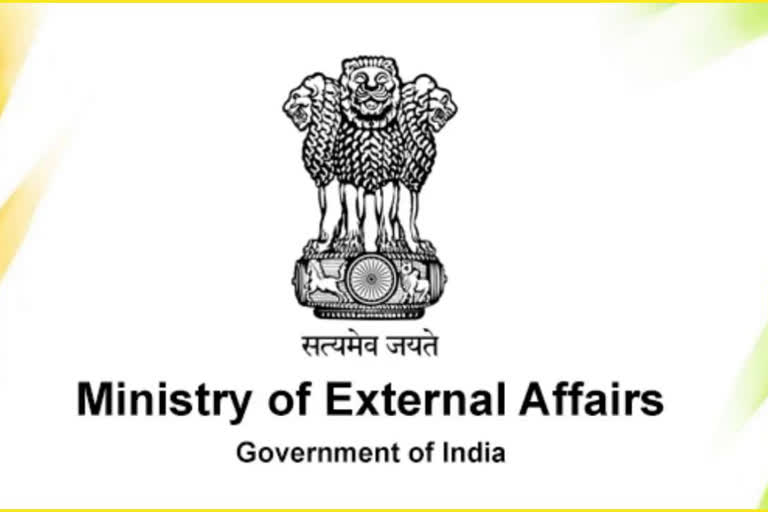New Delhi: The Ministry of External Affairs on Friday has organised two virtual panel discussions on Gulf Cooperation Council-India in the run-up to the Pravasi Bharatiya Divas Convention to be held next month.
An expert opines that India for the first time in 4 years has adopted a pro-active policy in the gulf, which is seen as a major shift in the status quo foreign policy.
Speaking to ETV Bharat, Professor Aswini Mohapatra, Dean, School of International Studies, JNU said, “If we recall, the relation between India-Gulf was described differently going beyond the seller-buyer relationship that implies India’s over-dependence on energy resources from the gulf.
“India has begun to diversify its bilateral relationship with the Gulf countries, particularly UAE and Saudi Arabia so much so that the Army chief’s visit to Saudia Arabia and now Foreign Minister’s visit to Oman marks the deepening of ties. The Gulf countries always looked towards India for the relatively pro-active role, because they have immediate threat coming from Iran,” he added.
Chaired by MoS MEA V Muraleedharan, the first Panel Discussion at the India-GCC provided a platform to discuss the ways and means in which the historic people-to-people ties and excellent political and economic relations between India and GCC could be used to contribute to the vision of a self-reliant India on the path towards a 5 trillion dollar economy.
The Prof further said, “The latest message, what I understood India is trying to give to the Iranian side is to resolve the bilateral issues with the neighbouring countries fast. Secondly, India has its security compulsion which the Iranians need to appreciate i.e the rising power of China which happens to be our neighbour, border tension between the two countries. So India needs to ramp up its military infrastructure to meet any kind of contingency.
He underlines that India has begun to tilt to the Western countries particularly the United States. India’s relation with the Gulf needs to be seen in a broader context. India had this space and scope before to play a balancing role, now it is becoming increasingly difficult for the policymakers to do that.
In a way India is pressurized to take a side and the whole of West Asia is polarized mostly these days along the sectarian line. But India does not want to involve itself as either mediator or a facilitator in terms of resolving the differences. We are not so overtly taking a position against Iran as such, but deepening ties with Gulf countries means we are with Saudi and UAE, which happen to be the arch-rival of Iran.
Another dimension is the normalize relation between Israel and the Gulf countries, Mohapatra points out.
"According to me, a new alliance is being formed in West Asia. What shape it will take is difficult to predict but definitely, it has begun to take some kind of shape between the Gulf countries and Israel. India in between is trying to support this alliance", he explained.
India also expressed hope for harmonious relations between all the countries in the Gulf region. Kuwait has mediated to defuse tension between Qatar and several other countries in the Gulf region.
In response to a media query on the statement by Kuwait FM that there has been progressing in the resolution of the intra-GCC crisis, the Official Spokesperson Anurag Srivastava on Friday said” We have seen the statement from Kuwait side that fruitful discussions have taken place towards resolving the rift in the region. We have also seen statements from other countries in this regard.
"We welcome these announcements. India shares close civilisational, economic, political and cultural ties with all the Gulf countries. We hope for harmonious relations between all the countries in the region”. Srivastava added.
The United States and Kuwait have worked to end dispute after Saudia Arabia, the UAE, Bahrain and Egypt cut diplomatic ties with Qatar in mid-2017.
The India-GCC panel discussion also focused on the role that the large and successful Indian diaspora in the GCC can play in realizing this vision.
The second Panel discussion deliberated on harmonizing of the skill sets of India’s workforce in keeping with the pace of technological developments and economic changes in the Gulf region. The panel also discussed the various steps taken by the Government of India to safeguard the interests of Indian workers especially those in the Gulf region.
According to MEA, almost 15 eminent panellists from India and abroad participated in the panel discussions.
ALSO READ: Border standoff in Ladakh result of actions by China: India



